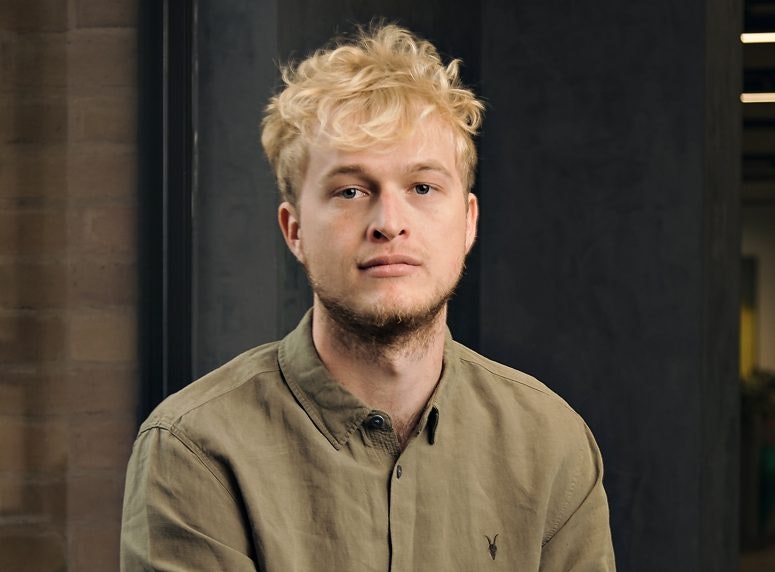Europe’s VCs are scouring the grounds of university campuses for the next big thing, convinced a fund returner could be lying in wait in a lab somewhere on the continent.
The UK and Germany are leading the region’s efforts, with a number of British funds set up to back university spinouts and investment into such companies topping £2.6bn in 2024, according to a report by the Royal Academy of engineering and data platform Beauhurst.
Meanwhile, Germany is pouring millions into 10 new startup factories it hopes will mimic UnternehmerTUM, the startup lab of the Technical University of Munich, which is seen as a model for how academia can successfully commercialise research.
But which spinouts are investors most excited by?
Sifted asked investors from Earlybird, B2venture, AlbionVC and First Momentum for the non-portfolio picks they’re keeping tabs on.
Sabrina Stöckl, principal at B2venture

Studyflash — Switzerland
Studyflash, evolved from a university project at Nova SBE, is building an AI-powered learning platform designed to make studying more efficient and personalised. Its core product, a learning copilot, converts user-uploaded materials into hyper-personalised learning formats such as flashcards, summaries, quizzes and podcasts.
The platform provides personalised study paths tailored to each learner’s needs and preferences over time. While operating in a competitive space, Studyflash’s approach to orchestrate and manage content across different study tools differentiates it from existing “DIY” solutions that often only provide siloed study tools.
IPercept — Stockholm
Originating as a spinout from the Royal Institute of Technology in Stockholm, IPercept develops AI-driven solutions for predictive maintenance in industrial machinery. Using proprietary IoT sensors to capture machine motion data, the system enables real-time diagnostics and condition-based monitoring, helping reduce downtime and extend equipment lifespan.
The platform is commercially launched and supported by a dual go-to-market strategy of direct sales and partnerships. With early traction in metalworking and related sectors, the company offers a superior solution for manufacturers aiming to modernise maintenance through data and automation.
Arqh — Switzerland
Arqh, founded by ETH Zurich alumni, offers an AI-powered platform for optimising logistics operations in industries with complex physical assets and field workforces. Its proprietary engine automates both real-time dispatch and long-term planning, accessible via a centralised Command Tower interface.
With a vertical-agnostic approach, Arqh addresses the broader challenge of logistics decision-making at scale. While still early, its blend of technical depth and practical application positions it as a promising solution for cost-efficient, AI-driven operations management.
Xelerit — Switzerland
Today, industrial automation is fragmented across multiple hardware vendors, prone to errors and downtime due to manual and suboptimal processes, and accessible only to large corporations with the budget to hire external integrators. Xelerit is an agentic development environment where AI agents program, test and deploy industrial automation applications, acting as an interface between human intent and machine execution. It enhances the process by 80%, cutting cost, errors and complexity via unified integration, coding and testing.
Kyrok — Germany
Kyrok, founded by WHU alumni, is bringing AI to the heart of supply chain decision-making in the pharmaceutical and chemical industries. These sectors operate in complex, high‑stakes environments where shortages, overstock and inefficiencies have significant consequences.
By focusing on making planning and operations more responsive and data‑driven, Kyrok addresses a major pain point in global logistics. This represents a significant opportunity as supply chain optimisation in these industries remains under‑digitised, and Kyrok’s targeted approach positions it well to deliver measurable value in a market that demands both speed and reliability.
Natalia Ahmadian, investment team at Earlybird

SA-Dynamics — Germany
Solid Air Dynamics is a spinout from RWTH Aachen University that develops circular, bio-based aerogel fibres for high-performance insulation textiles. These are intended to replace the currently used insulation materials made from fossil raw materials or minerals such as polyurethane, polyethylene, glass or stone.
The fibres can consist of more than 90% air and have thermal super insulating performance. Compared to conventional aerogel materials, like granulates or powders, they are easy to process on standard textile machineries. This is making them applicable to wide range of applications, boosting performance and sustainability of future insulation materials.
MechIC — Germany
MechIC is a spinout from Ruhr University Bochum that provides sensors that don’t require electrical energy. Its sensors use micro-mechanical components such as mechanical amplifiers, memories and logics, instead of traditional electronics. These components are integrated into a mechanical integrated circuit (mechIC), allowing the sensor to function without an external power supply. The sensor provides a direct digital signal and includes a mechanical memory that detects and permanently stores threshold values or overload.
Oris — Italy
Oris is a spinout from I3P, the incubator of Politecnico di Torino, which enables wireless power transmission from lunar-orbiting satellites using high-power lasers. These satellites harvest and store solar energy during their orbit and transmit it to users via precisely directed laser beams. The system includes three core components: the laser source, a beam pointing mechanism and thermal management for heat dissipation.
By separating energy generation from consumption, this approach supports more efficient Earth orbit missions and makes future lunar operations more sustainable. The transmitted light can be converted back into electricity with over 60% efficiency using monochromatic photovoltaic cells, opening new possibilities for mission design in space.
Ana Koller, head of research at First Momentum

NitroVolt — Denmark
A spinout from DTU, NitroVolt is developing a modular electrolyser to produce green ammonia on-site and on-demand. Its system combines electrochemical synthesis with decentralised deployment, sidestepping the high logistics costs and geopolitical price volatility tied to fossil-based ammonia production.
Green ammonia is critical for decarbonising agriculture and shipping, and NitroVolt’s approach is based on one of the most promising scientific pathways in the field. It’s currently assembling a 5 kg/day pilot unit, with successful lab validation of core components. Certification and field deployment are planned next, with commercial scaling on track for 2026.
GraphiCore — Italy
GraphiCore, a spinout from Politecnico di Milano, is building robotic systems for one of the toughest industrial jobs: safely handling radioactive, brittle and ultra-hot materials. Its autonomous gripping platform (now validated at TRL 7 in a full-scale mockup test) can retrieve irradiated graphite blocks (up to 250kg), with a real reactor demo on the horizon.
It’s low-maintenance, modular and works from -200 °C to 1,200 °C. Additional tools like soft tweezers, vacuum systems and AI-powered vision unlock broader use cases, with up to 5x efficiency gains already demonstrated. While rooted in nuclear decommissioning, its tech also applies to high-temperature and cryogenic industries like steel and metallurgy.
8inks — Switzerland
8inks, a spinout from ETH Zurich, is scaling a radically better way to manufacture batteries. Its core innovation is adapting curtain coating, a high-throughput film production method, to deposit complex, multilayer battery electrodes with unmatched speed and precision. This enables faster, cheaper and chemistry-agnostic production of lithium-ion, solid-state and next-gen batteries. 8inks just launched a 300m² scale-up centre in Zurich with a FOAK industrial pilot coater and is now raising a €6m seed round.
Sebastian Hunte, investment director at AlbionVC

Constructive Bio — UK
Constructive Bio is reprogramming life at the molecular level by rewriting genomes and reengineering how biology translates genetic code into function. This allows for the creation of entirely new classes of biomolecules that don’t exist in nature, opening up applications in sustainable manufacturing, therapeutics and advanced materials. It’s exciting because it offers a radically new foundation for biotechnology — programmable, scalable and decoupled from the constraints of natural evolution.
Molyon — UK
Molyon is developing lithium–sulfur batteries, a next-generation energy storage technology with significantly higher energy density and lower environmental impact than current lithium-ion systems. These batteries could enable lighter electric vehicles, longer-lasting drones and more efficient grid storage. It’s exciting because it tackles the fundamental limitations of today’s batteries and offers a path to truly scalable electrification.
Prior Labs — Germany
Prior Labs is building foundation models specifically for tabular data, enabling AI to reason over structured datasets like spreadsheets, databases and time-series records with minimal tuning. Its models outperform traditional machine learning methods while being far faster and easier to deploy. This is exciting because it brings the power of foundation models to the most common, and most valuable, form of enterprise data.
Anybotics — Switzerland
Anybotics builds autonomous legged robots designed for industrial inspection in environments too dangerous, remote or complex for humans. Its quadruped robots can navigate stairs, uneven terrain and confined spaces while performing tasks like gas leak detection, visual inspections and asset monitoring. It’s exciting because it brings true autonomy to real-world industrial infrastructure, improving safety and operational efficiency across energy, chemicals and utilities.
QuantumDiamonds — Germany
QuantumDiamonds creates quantum sensors that can detect electromagnetic fields with nanometer precision, enabling 3D imaging of defects inside advanced semiconductor chips. Its diamond-based sensors reveal faults that are otherwise invisible, helping improve chip yield, performance and reliability.
Read the orginal article: https://sifted.eu/articles/16-university-spinouts-to-watch-according-to-vcs/


